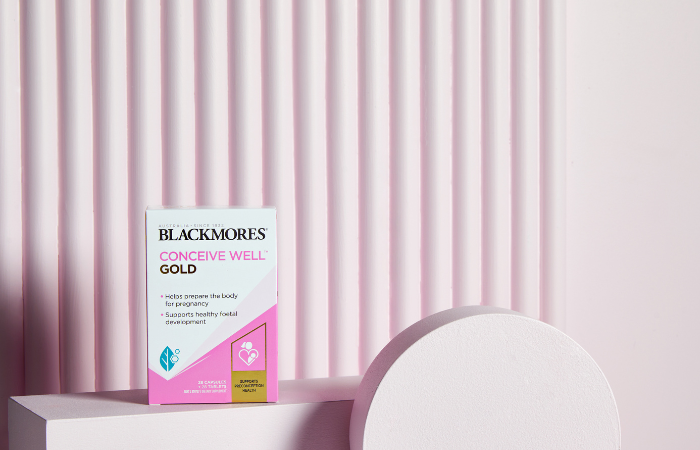Eating a healthy, varied diet that provides a wide range of vitamins and minerals is always important, but it becomes more so during pregnancy, to help keep both you and your growing baby healthy.
Not only are certain nutrients vital, the body’s need for some specific ones – like iron, iodine and folate – increases during pregnancy, too.
As a result, most women are advised to take specific supplements for a certain amount of time during pregnancy and even when they’re planning to become pregnant, but some may also benefit from taking a multivitamin. And other women may simply want to take a multivitamin, particularly when you consider the fact that, according to official statistics, fewer than one in 10 women in Australia eat the recommended two serves of fruit and five serves of vegetables each day.
What to look for in a prenatal multivitamin
A general piece of advice to start with – be sure to choose a multivitamin that’s been specifically formulated for pregnancy.
Not only is it important to use a multivitamin that provides safe, pregnancy-specific doses of key nutrients, also remember that some vitamins and minerals are not recommended in large amounts, so it’s important to always follow the directions for use.
Next, while a wide variety of nutrients are important during pregnancy, there are a few to pay particular attention to. Make sure the pregnancy multivitamin you choose to take contains:
500mcg of folic acid. Maintaining this daily dose during the first three months of pregnancy, as well as eating foods that are naturally rich in folate, can protect against neural tube defects in the developing foetus. Rich food sources of folate include asparagus, broccoli, chickpeas, lentils, oranges and wholegrain breads.
150mcg of iodine. Not only is iodine deficiency quite common in Australia, iodine requirements increase during pregnancy in order to support both you and baby’s healthy development.
Iron. The recommended intake of iron during pregnancy jumps up to 27mg a day, a third more than the recommended amount when you’re not pregnant. The reason is because the developing foetus draws on its mum’s iron stores so that it has enough to last during the first five or six months after birth. As a result, iron deficiency during pregnancy is common in Australia.
Vitamin D. It’s essential for baby’s growth and development and for your own health too, during pregnancy, and yet low levels of vitamin D are common in pregnant women in Australia. As a result, supplementing vitamin D during pregnancy is often recommended, although a blood test to check vitamin D levels may be recommended for women who are most at risk of deficiency.
EPA and DHA omega-3s. Requirements for these two essential fatty acids rise during pregnancy, thanks to the role they play in baby’s brain and nervous system development. So, as well as eating two or three fish meals a week (taking care to avoid fish high in mercury), look for a pregnancy multivitamin that contains omega-3s in the form of EPA and DHA, making sure it’s sourced from quality ingredients.
If you’re unsure whether a pregnancy multivitamin is right for you or which one to take, speak to your doctor or ask a Blackmores naturopath for free, personalised advice.

Blackmores Conceive Well™ Gold prepares the body for healthy conception. Some of the key nutrients include:
- Folic acid - Contains a daily dose of 500 micrograms of folic acid to help prevent neural tube defects such as spina bifida and/or anencephaly
- Iodine – supports healthy foetal brain development
- Iron – supports healthy foetal development. 38-40% of Australian women have below recommended intake of iron
- Fish oil - is a source of omega-3 long chain fatty acids
Once you fall pregnant we recommend you switch to Blackmores Pregnancy & Breast-Feeding Gold , a premium pregnancy formulation containing vitamins, nutrients and essential fatty acids beneficial for both mother and baby.
Always read the label and follow the directions for use.

Blackmores Pregnancy & Breast-Feeding Gold provides 20 important nutrients in total including a daily dose of:
- 500 microgram of folic acid to help prevent neural tube defects such as spina bifida and/or anencephaly
- 150 microgram of iodine to help support foetal brain development
- Lower constipation iron
- Odourless and concentrated fish oil, rich in DHA for foetal brain and nervous system development
Always read the label and follow the directions for use.